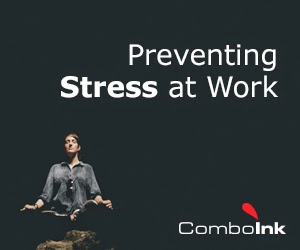Easy Ways to Prevent Stress at Work & Lower Stroke Risk
Unchecked or chronic stress can lead to anxiety, depression and social isolation. It can even cause physical symptoms such as insomnia, adnominal pain, hemorrhoids, high blood pressure, panic attacks, cardiovascular diseases and stroke. In short, stress can be a killer. May is Stroke Awareness Month; we look at how we can reduce stress and control this major contributor of strokes. And when we say prevent stress at work we include work outside the home and in it – all the various things that we have going on that lead to stress.
What is stroke?
A stroke or a cerebrovascular accident (CVA) occurs when the blood flow to the brain is disturbed, leading to cell death. There are two types of stroke: ischemia (restriction of blood flow) or hemorrhage (bleeding in the brain) and both cause a part of the brain to not function properly. Stroke can cause paralysis of one side of the body, difficulty speaking and moving, cognitive problems and even death.
Bone up on these facts this Stroke Awareness Month
795,000 Americans suffer strokes each year, so clearly this is a national epidemic. Tragically, up to 137,000 people die as a result of stoke each year. Surprisingly, stroke targets more women than men: of the people who die from a stroke, 60% are women. Apart from the very human costs of stroke, strokes have a very significant economic impact: about $73.7 billion a year was spent on stroke-related medical costs and disability in the year 2010.
Tips for stoke prevention
- Manage and lower high blood pressure and maintain good cardiovascular health. Unchecked cardiovascular ailments are among the biggest risk factors of stroke.
- Give up smoking. No matter how hard you think it is, YOU CAN DO IT for yourself and everyone near and dear to you.
- Eat healthy – lots of fresh fruit, veggies and whole grains, fish and lean meat and moderation in everything
- Exercise regularly. Just walking 20 to 30 minutes a day is great for you
- Cut down on alcohol –no more than one drink a day for women and no more than two for men
- Control stress: here’s how:
Tips to control stress at home and work
- Prioritize things that need doing. Look at the big picture; assign time and resources to what really matters. In short, don’t stress about the niggling little things. You can’t do everything and if some stuff gets left out, that’s OK!
- Learn to say No! Not just to others, but to yourself as well! Help someone by all means, but not at a significant cost to you! Set boundaries and don’t let people encroach on your personal space – physical or spiritual.
- Don’t pressure yourself to be perfect. And certainly there is no need to try to keep up with someone else or to be like them.
- Find things that make you happy and spend time doing them. Engage in a hobby that you like, read an uplifting book, spend time with friends and family members who value you who make you feel good about yourself.
- It’s OK to worry! Your child or grandchild is sick, your husband is diagnosed with an ailment, your friend is having relationship issues, you’re having problems at work. With all this going on in your life, you can’t expect not to worry. Set aside some time for worry and explore your feelings. This is the first step towards coming to terms with them.
- Share your problems. Not only does it help to let out bottled feelings, you may be surprised at the simple solutions that a friend, partner or relative may be able to offer.
- Take time out for yourself your own requirements. Don’t relegate yourself to the last priority (women tend to be guiltier of this)
- Focus on the positives in your life. We all have our problems, but by choosing to focus on what is good in your life, your problems will seem small by comparison. In short, count your blessings.
More tips for stress relief
- Reduce clutter in the home and reduce the inessentials in your life. This is a tried and tested stress relief tactic
- Get yourself a nice relaxing massage to physically de-stress
- Practice meditation for just a few quiet minutes in a day. It centers your mind, helps you focus, improves your memory and is known to reduce stress
- Learn breathing exercises, practice them for a few minutes each time you feel overwhelmed at home or at work
- Work out regularly. Your body releases feel-good hormones during physical activity
Here’s hoping that these tips help you make positive changes to your life. If you have any stress relief pointers, we would love to hear about them. Do kick off a discussion in the comments section below with any remarks or information you’d like to share.

